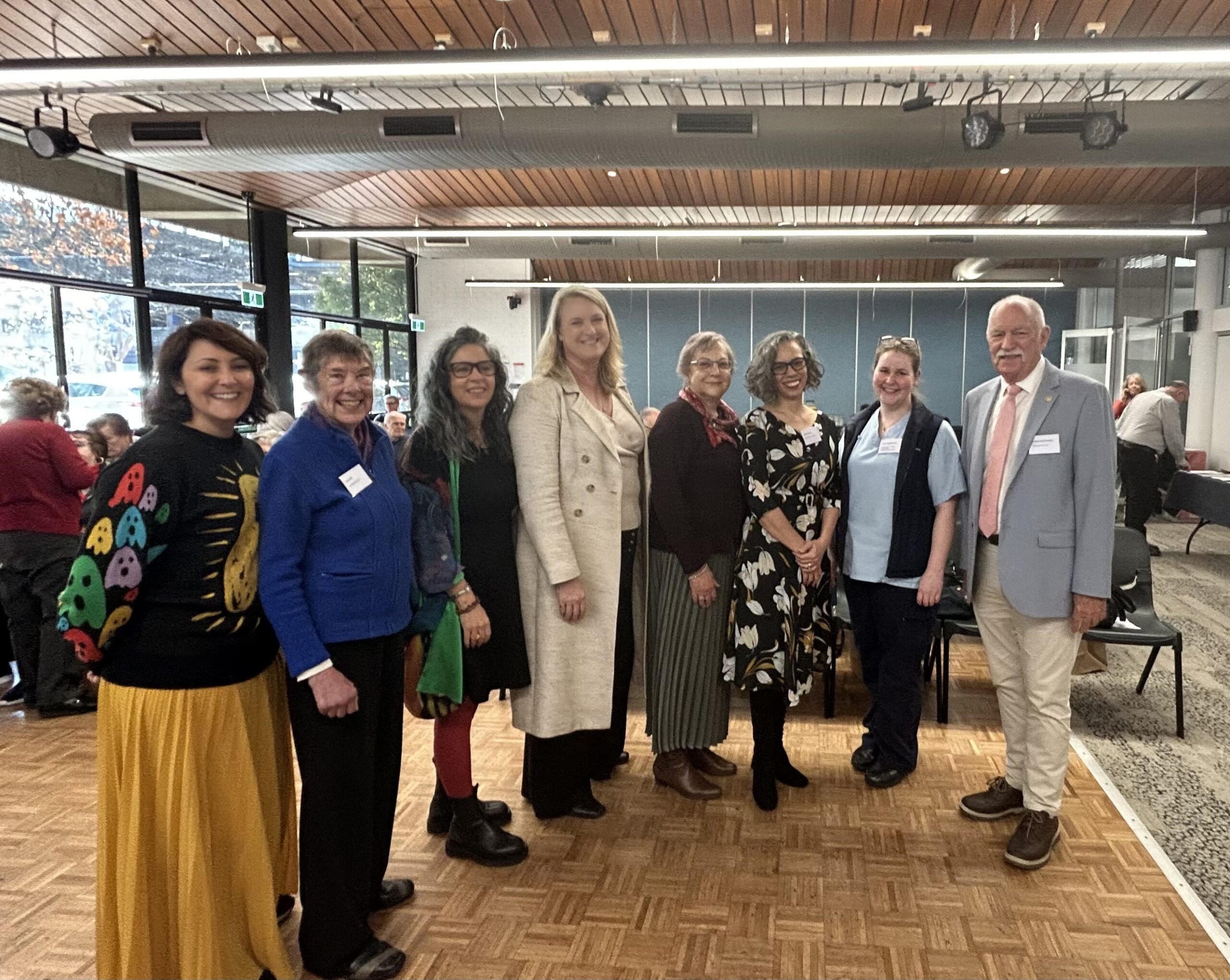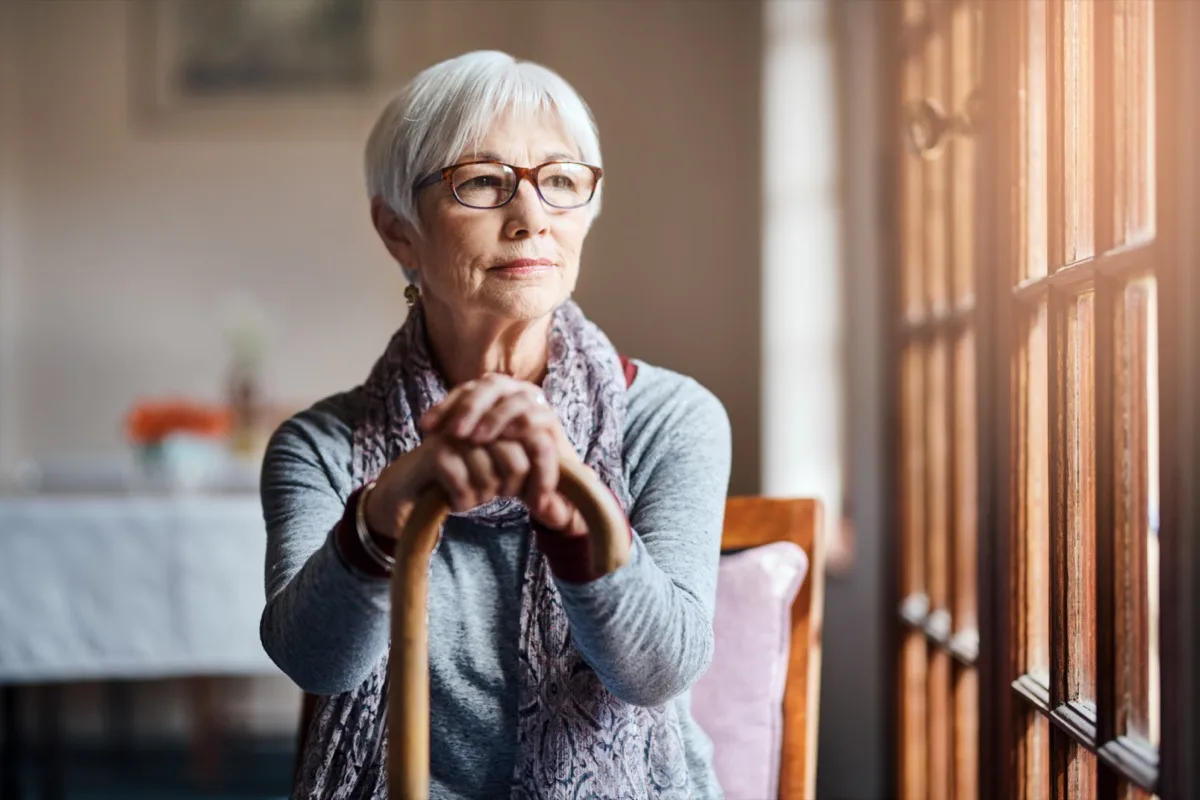
As the first of the baby boomers turn 80 this year, the major parties are on a unity ticket sharing an ideological commitment to the private market and a commitment to make older people pay more for their aged care. Neither party has the details right.
Nearly four years on from the Aged Care Royal Commission, older people and their families are beginning to experience some improvements in the quality and safety of residential aged care. The Albanese government has substantially increased funding, a new funding model has largely stabilised the residential aged care sector and mandated staffing ratios and care minutes are leading to improved staffing and better quality care.
However, access to residential care has become much harder with public hospitals increasingly becoming default aged care providers caring for people waiting weeks to months for an aged care bed. This is having serious flow-on effects both for the older people left waiting for months as well as the medical and surgical patients who are not receiving the clinical care they need because of public hospital bed block.
A new Aged Care Act was introduced in 2024 and will take effect from 1 July 2025. The rights of older people are a central and welcome feature of the new Act.
But the Act is quite high level with the operational detail left to a set of subservient “Aged Care Rules”. Consultation drafts of the Rules have been progressively released as they are being written with comments closing on 13 May 2025. This is a bureaucratic process with no public accountability or oversight by the parliament.
Two months out from the Act taking effect, there are more than 700 pages of draft Rules, making it almost impossible for anyone to absorb them or provide a considered response. The final Rules are likely to be released only days before they take effect. Inevitably, things will go wrong.
While aged care residents will welcome the legislative commitment to their rights, two residential care changes will be less welcome. The first is a substantial increase in the fees and charges that residents will pay. Both major parties share a perception that the baby boomers are cashed up with the financial capacity to pay considerably more.
Indeed, the December 2024 mid year estimates budgeted for a massive $18.8 billion saving in aged care over the forward estimates to be achieved by substantially increasing how much older people pay for their care. This budget saving was supported by the opposition.
However, while many younger boomers may be cashed up, most older boomers are not and both major parties have ruled out touching the family home, which is the only asset for the majority of older people. The average age of entry to residential care is 85 years and only 13% of people 85 and older have more than $100,000 in superannuation. Further, two thirds of people entering aged care are women, who have significantly less superannuation than men. Charging aged care recipients $18.8 billion more in user charges may prove to be unachievable.
While there are protections for full and part pensioners, a typical self-funded retiree moving to residential care and paying a daily accommodation fee can expect to pay more than $120,000 per year in accommodation and care charges from 1 July 2025. There is a lifetime cap of $130,000 on non-clinical user contributions but no lifetime cap on accommodation charges.
The second significant change in residential care is the abolition of existing planning standards and bed licenses for residential care. The availability and location of residential care will now be left to the market with aged care providers effectively free to open and close homes wherever they chose.
The market, not the needs of older people, will determine what residential care will be available. Inevitably this will skew investment into wealthier areas at the expense of people living in lower socioeconomic areas.
However, there is now much more money to be made from investments in the retirement living sector than in residential care and the current aged care bed shortage will only increase as time goes on. This will inevitably result in longer waits and more public hospital bed block. Neither party has a plan for this.
In introducing the new Act, the government argued that less aged care beds will be required in future because more people want to receive their care at home. This makes no sense. It assumes that residential aged care is a lifestyle choice that is now going out of fashion. Older people do not go to residential care as a lifestyle choice. Older people move to residential care when they can no longer live safely at home.
This raises the obvious question about proposed changes to home aged care. There are currently 2.2 million people over 75 in Australia and 1.3 million (60%) currently receive aged care. Only 15% of people receiving aged care are in residential care, the other 85% receive care at home and in the community.
By far the majority of older Australians receiving care at home do not receive an “aged care package”. Instead, they receive services funded through the Commonwealth Home Support Program (CHSP). Each CHSP service receives an annual Commonwealth government grant and these services support 64% of all aged care recipients.
Services such as Meals on Wheels, community transport, neighbourhood day programs and community nursing are provided by not-for-profit community organisations as well as state and local governments and are all funded through CHSP. CHSP recipients are typically lower need and in most cases access services directly rather than through the Commonwealth “my aged care” gateway that channels people to the rest of the aged care system.
But both major parties have been on a unity ticket in running down CHSP in favour of a private for-profit market model known as community aged care “packages” and a growing percentage (currently 21%) of aged care recipients are now receiving a package. This is where the government allocates an older person a budget “package” to pay for their care. This allocation is in effect a cashless credit card earmarked for each individual person. There are currently 275,000 people receiving an aged care package and 85,000 people on the waiting list.
The current package system will be replaced from 1 July 2025 with a new package program called Support at Home. Support at Home differs from existing packages in having more funding levels, less flexibility and significantly higher user charges.
Hundreds of pages of the new Aged Care Rules are devoted to minutiae red tape and regulation about the Support at Home program. The design of the new program significantly increases the transaction and compliance costs for both government and providers, making Support at Home substantially more expensive and less efficient than CHSP. Inevitably these increased costs flow into higher charges for older people and their families as well as increase costs for the Commonwealth.
The 275,000 older people currently receiving a package will be protected from increases in user charges based on a government commitment to current package recipients being “no worse off”. While this is good politics, it further reduces the likelihood that the budgeted government savings will be realised.
This is not the case for those not already on a package. Anyone needing a package will be hit with a sizeable increase in fees and charges.
As just one example, anyone requiring personal care such as assistance with showering and dressing will be charged a co-payment. At an average hourly rate of about $100, full pensioners will pay $5 an hour, part-pensioners $5 to $50 an hour depending on income and self-funded retirees will pay $50 an hour. Fees for domestic assistance will be even higher indicatively ranging up to $76 an hour for self-funded retirees.
The original intention has been that the CHSP would be closed down with the 835,00 people receiving CHSP not for profit and government services being transferred to Support at Home in July 2025 as well. However, Minister Mark Butler announced in 2024 that CHSP would not transition to Support at Home until “at least 2027”.
Setting aside the issue of who pays for what, a key goal of home aged care is to reduce demand for residential aged care. This is where Support at Home is destined to fail. While the inclusion of access to nursing and allied health is welcome and evidence-based, the design of Support at Home ignores the international evidence about how to support older people to live in their own home for as long as possible. That evidence includes rapid response times without long waiting times, nimble and flexible services that can flex up and down in response to changing needs and adequate physical, social and emotional support for family carers. None of these essential features are incorporated into the design of Support at Home.
On the eve of the 2025 federal election, both major parties are on a unity ticket to deliver an aged care system that Australia can afford and that will meet the needs of the tsunami of baby boomers now moving into their 80s. However, both major parties have many details wrong.
The reforms since the Royal Commission have mostly been sensible. But the devil from here is in the detail. The design of the new Support at Home program and intentions to abolish the Commonwealth Home Support Program are not what the Royal Commission recommended and they will not meet the needs or the aspirations of older people. No sensible government would abolish an efficient program with one that costs substantially more, especially in the face of increased demand as the baby boomers reach old age. Yet that is what both major parties are mooting.
Meeting the needs of ageing baby boomers in ways that will not exacerbate intergenerational inequity must be a top priority for the next government. An investment in keeping older people healthy, along with a commitment to maintain and build on the strengths of CHSP, will be an essential first step.
While some older people are happy and capable of managing an aged care package in which their care is treated as a set of financial transactions, the majority of older people living at home want relationship-based care and support from people and organisations they know and trust. Going forward, a sustainable and affordable community aged care system must build on the expertise, culture and reputation of the not-for-profit sector in partnership with state and local governments.
As we move into the next phase of reform, people needing care at home must be given the option of receiving services from grant-funded not for profit providers or a cashless credit card to pay for their services in the private market, whichever they prefer. At the same time, there needs to a capital investment program to ensure that residential aged care is available to all those who cannot live safely at home.
While aged care has not featured in the 2025 federal election campaign, aged care is a sleeper issue for the next government. Older people, their children and their grandchildren represent a powerful political force in Australia. Bold reforms will be required during the next term of government to ensure that Australia’s aged care system is accessible to all who need it, affordable, safe and respectful. An Australian government that ignores aged care for too long does so at its peril.
 COTA organised Dying to Know Day (August 8th) COTA under the auspices of North Sydney MP, Kylea Tink. NSW member and dying well advocate Jill Nash co-organised a fantastic line up of speakers to discuss Death, Dying and Grief.
COTA organised Dying to Know Day (August 8th) COTA under the auspices of North Sydney MP, Kylea Tink. NSW member and dying well advocate Jill Nash co-organised a fantastic line up of speakers to discuss Death, Dying and Grief. 
